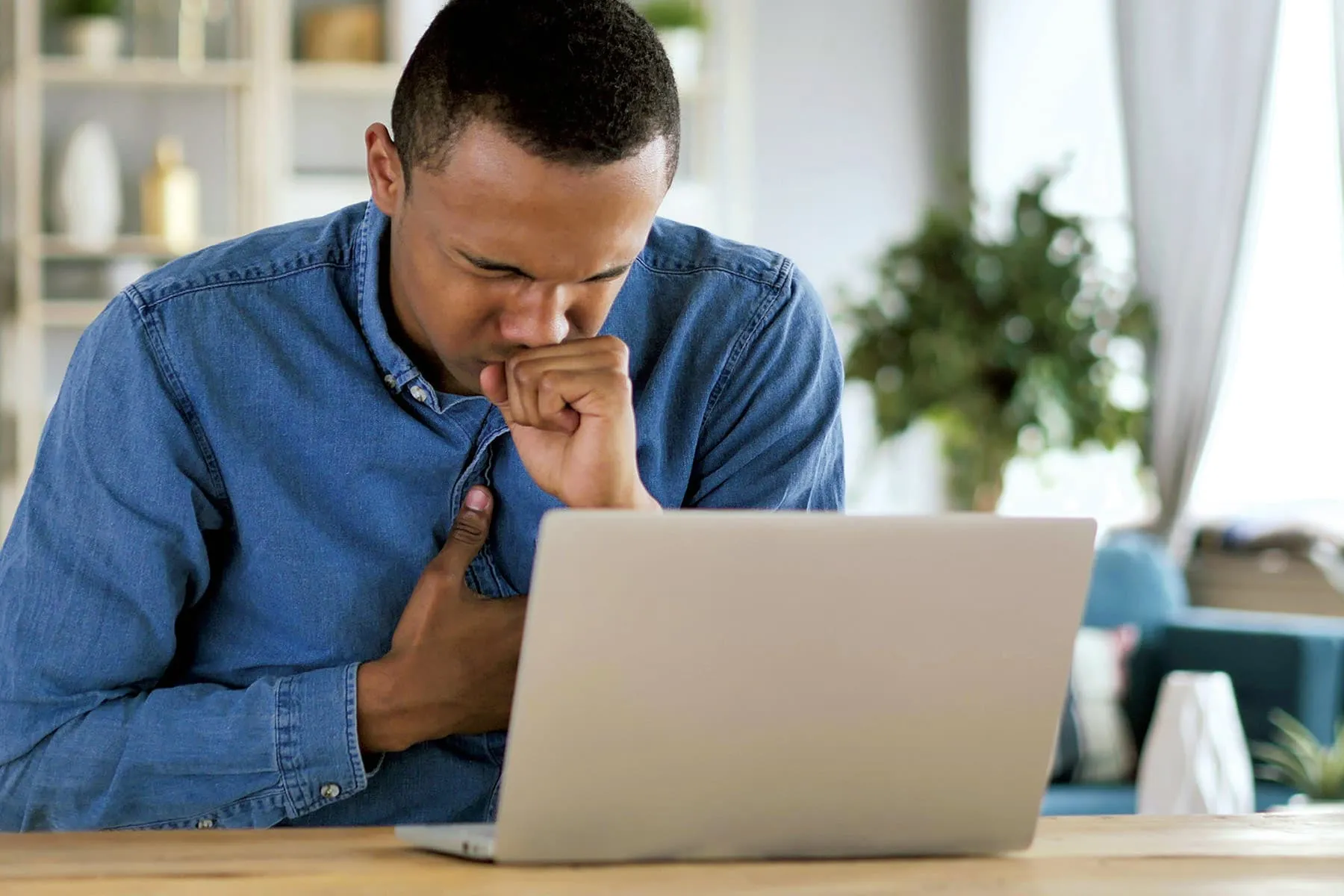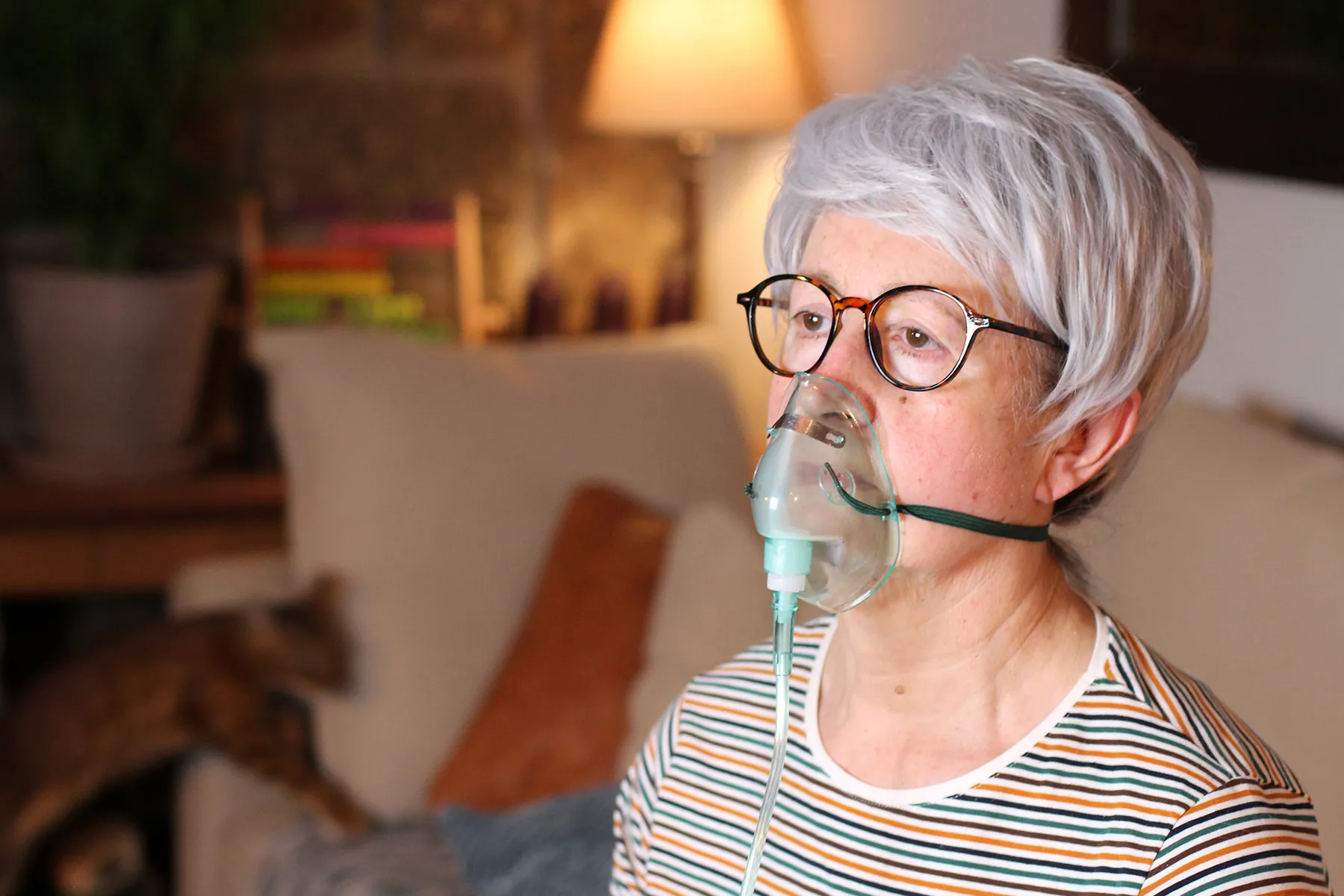Respiratory syncytial virus (RSV) is such a common childhood infection that by age 2, most kids will have caught it at least once. When children bring home the virus from day care or school, they can get their parents and grandparents sick, too.
For most healthy adults, an RSV infection is nothing more than mild cold-like symptoms such as a runny nose, sore throat, and cough. But in people over 65 especially those who have a chronic disease or weakened immune system "the virus can be a problem," says Kunjana Mavunda, MD, a pediatric pulmonologist practicing in Miami.
RSV can be dangerous because it damages cells lining the airway. When white blood cells rush in to fight the virus and heal the damage, they produce inflammation. "Then you have more complications like bronchitis and pneumonia," says Mavunda, who is also the former medical director of epidemiology and disease control at the Miami-Dade Department of Health.
Those complications can be life-threatening to people over 65. The virus sends up to 120,000 older adults to the hospital each year. As many as 10,000 die from RSV.
A few tips can help you avoid RSV and get the right care if you do catch this infection.
What Is RSV?
RSV is a virus that causes respiratory illnesses infections of the nose, throat, and lungs. It mainly spreads in the United States from the late fall to the early spring.
Most of the time, RSV produces mild cold symptoms. But it can cause more serious lung infections like bronchiolitis and pneumonia in people who are more susceptible.
How Does RSV Spread?
RSV spreads like colds, the flu, and COVID-19 when an infected person sneezes or coughs and releases a spray of virus-filled droplets into the air or touches a surface with germy fingers. You can get infected if the droplets get into your nose, mouth, or eyes, or you touch a surface that's been contaminated with the virus.
Just like the flu and COVID, RSV is very contagious. "Once RSV enters a home, then everybody is going to get sick," Mavunda says.
Older adults are especially vulnerable to this virus because the immune system weakens with age. "People who are elderly have a much more limited ability to fight infections than people who are younger," says Jay Varma, MD, director of the Weill Cornell Center for Pandemic Prevention and Response, and a Kroll Institute fellow.
RSV Symptoms
Mild RSV looks like a cold or the flu, with symptoms like:
- Sneezing
- A stuffed or runny nose
- Coughing
- Low-grade fever
- Sore throat
- Appetite loss
After a few days, if the infection spreads into your lungs, it can cause more severe symptoms like these:
- High fever
- Wheezing
- Shallow or fast breathing
- Intense, barking cough
Compare Your Symptoms:
Do You Have a Cold, the Flu, COVID-19, or RSV?
Getting a Diagnosis
Symptoms alone won't tell you for sure if you have RSV. "The only way to know for sure is to visit a medical provider and have them do a laboratory test," says Varma. "It's the same type of swab you probably had many times during the peak of the COVID pandemic."
As with COVID-19, there is a rapid RSV test that gives you results in about 30 minutes, and a more accurate PCR test that can take 2 to 3 days to get results. The same test also checks for the flu and COVID-19, so you'll know which one of these viruses you have.
At your appointment, the doctor will ask about your symptoms and listen to your lungs with a stethoscope. You might also have one of these tests:
- Pulse oximetry to measure the oxygen level in your blood
- Chest X-ray or computed tomography (CT) scan to find any lung problems
Possible Complications
Healthy adults usually get over mild RSV in a few days. But in older adults, the virus can cause one of these more severe infections:
- Bronchiolitis inflammation in the small airways of the lungs
- Pneumonia a lung infection
RSV can also make these conditions worse:
- Asthma
- Chronic obstructive pulmonary disease (COPD)
- Congestive heart failure when your heart can't pump out enough blood to meet your body's needs
RSV complications can be serious enough to put some people in the hospital. See your doctor if your symptoms don't get better in a few days, or if they get worse. Call sooner if you have symptoms like trouble breathing, a wheezing cough, or no appetite.
Treating RSV
Unlike COVID-19 and the flu, which have antiviral medications, there is no specific treatment for RSV. Get extra rest and take care of yourself until the infection clears up, which should happen in a week or two.
For mild symptoms, you can do a few things to make yourself more comfortable. Drink extra fluids so you don't get dehydrated. Take an over-the-counter pain reliever like ibuprofen (Advil, Motrin) or acetaminophen (Tylenol) to relieve a fever and body aches.
If RSV turns into pneumonia, your doctor can prescribe antibiotics to treat the infection.
For severe RSV, you might need treatments like these in a hospital:
- Medicine to bring down your fever
- Oxygen to help you breathe better
- Fluids through an IV to keep you hydrated
- Inhaled steroids to help you breathe if you also have COPD or asthma
None of these therapies actually treats RSV. "They support your body so that it can use its own defenses to fight off the infection, and they prevent you from having a complication that could make you more likely to get severely ill," Varma says. Getting supportive care in a hospital can also prevent conditions like congestive heart failure or diabetes from getting worse while you have RSV.
Rarely, people with RSV have so much trouble breathing that they need a ventilator to breathe for them.
Signs You Need to Go to the ER
Preventing RSV
There isn't a vaccine to prevent RSV, although researchers are working on one. A few vaccine candidates are in development. In a clinical trial, one new vaccine helped prevent severe illness in older adults.
You can avoid RSV by doing many of the same things you'd do to prevent colds, COVID-19, and other respiratory infections. "The single most important thing to protect yourself from RSV is to wear a well-fitting, high-quality mask any time you are sharing air in a public space or in a household with somebody who is having cough and cold symptoms," Varma says. He recommends a KN95 or an N95 mask.
Try to keep your distance from anyone who has symptoms like coughing or sneezing. If you can't stay away from people because you're in the same house, crack open a window to increase air circulation, Varma suggests.
Another way to prevent infection is to wash your hands often during the day. And don't touch your face.
Once you get over RSV, you may not be done with it for good. It is possible to catch the virus again because immunity to RSV isn't long-lasting. "That's the reason why people of all ages can get infected once a year, and sometimes many times during a given year," Varma says.
Because RSV spreads every fall and winter and is very contagious, it's important to keep protecting yourself and your loved ones against this infection.







































